Catholic Virtues
 |
 |
 |
 |
 |
 |
 |
Applying Suspicion, Vigilance and Pugnacity
toward Others
In the last article, we set out the trilogy of suspicion, vigilance and pugnacity, three characteristics of the authentic Counter-Revolutionary, and looked at them as applied to ourselves. Now let us look at how we should apply this trilogy toward others.
Suspicion, vigilance and pugnacity toward others
My neighbor is a man like me. All the evil I perceive in myself exists in everyone. I am neither better nor worse than the others. To say this is neither false humility nor a gross manifestation of pride. It is the experience of 62 years of existence. I am no better or worse than others. We are all bad, worthless.
The result: Even if I acknowledge the best qualities of some person but I see that he has no vigilance, what confidence can I have in him?
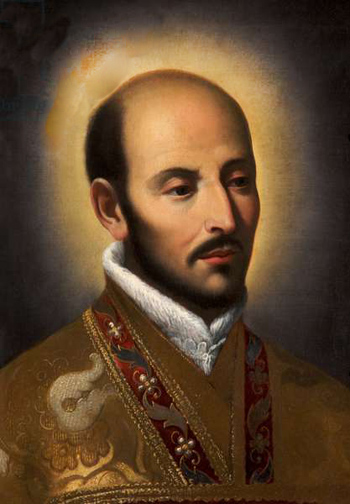 There are two types of neighbor: the friend and the enemy. With regard to a friend, my appraisal should include suspicion. Is he good? Often I want to say, "Yes, he's excellent ... right now. But how long will it last? That I do not know because I do not see vigilance in him."
There are two types of neighbor: the friend and the enemy. With regard to a friend, my appraisal should include suspicion. Is he good? Often I want to say, "Yes, he's excellent ... right now. But how long will it last? That I do not know because I do not see vigilance in him."
If I, without vigilance, will not remain good, why should he? Hence, a kind, respectful treatment, but with an open eye: I do not know how he will be tomorrow.
Sometimes you have to trust someone because one cannot go forward with a plan without making an act of trust in this or that person. But how often is it a somber, sad act of trust, saying to oneself, "How long will this last? From what vantage point? And to what extent? I don't know because I see no vigilance." This is obvious, normal. If you don't view it this way, you are not serious. The truth is this, and the rest is a farce.
I understand that someone can say to me, "I have been with you for a long time, and I see you still do not have a full trust in me as I have in you." What I would like to say is this, "My son, if I do not see vigilance in you, I cannot have confidence in you." How can I seriously say that I have a full trust? I would be playing the fool.
The enemy who is my neighbor
Now, if this sadly is the case with regard to those who are friends, clearly it is so in relation to the neighbor who is my enemy. Who am I referring to here? My enemy is not the person who raises the virtue of vigilance in me, the brazen man who insults and argues with me openly. We can clearly recognize that kind of enemy, and so he is less dangerous. I am referring to the enemy who is my neighbor.
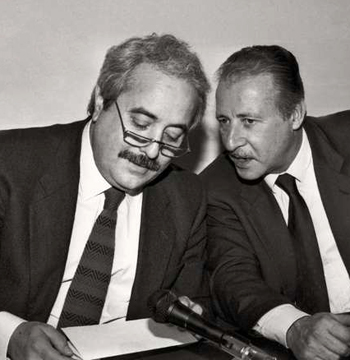 My enemy can be my neighbor when he is a colleague or some relative who smiles at me and praises me, not because he wants my true good but because he wants to obtain my sympathy so that afterwards he can instill in my soul, more or less covertly, the neo-pagan maxims of the Revolution.
My enemy can be my neighbor when he is a colleague or some relative who smiles at me and praises me, not because he wants my true good but because he wants to obtain my sympathy so that afterwards he can instill in my soul, more or less covertly, the neo-pagan maxims of the Revolution.
Why? Because anyone who gives me bad advice or exercises a bad influence on me is an emissary of Satan in my view. At a certain moment, Our Lord said exactly this to St. Peter. St. Peter said something wrong, and Our Lord responded, "Get behind me, Satan!" (Mt. 16: 23)
How many Satans do we have around us? How many Satans in whom a misplaced confidence is entrusted by today's Counter-Revolutionary who, moved by the residues of "white heresy," is so often prone to place his trust in this or that neighbor? Of course this happens, and it takes place frequently.
At times incidents like this occur: You enter a group of authentic Catholics and ask a favor of someone. That person does not acquiesce to the request. And so you go outside that circle and ask the same favor of someone else, who grants it.
Then comes the egoism and foolishness: "See, I don't find the help I need where I should - among my brothers. Instead I find it from these others. Now then, my true brother is one who helps me. So my real friend and brother is out there, not inside the group of true Catholics." What a sham! I cannot accept a person whose mentality poisons me, who communicates death to my soul, who distances me from Our Lady, my brother.
I should call him an imperfect brother, a brother with serious defects, a brother afflicted by the unfortunate evil of semi-fidelity, and not favor him over that poor individual who did not do the good he could have done for me but also did not drag me into evil. I will not call one who moves me away from Our Lady, who takes me from my Mother, my brother. That would be egoism, putting my own self interest in the center of everything.
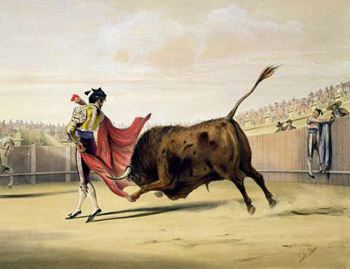 How many times foolish Catholics follow this wrong path! What is the result? Veterans of the Counter-Revolution know how one of our greatest difficulties has been to persuade Catholics that there could be an infiltration of heresy inside the Church. It was this lack of vigilance that opened the doors of the Catholic milieu to that infiltration.
How many times foolish Catholics follow this wrong path! What is the result? Veterans of the Counter-Revolution know how one of our greatest difficulties has been to persuade Catholics that there could be an infiltration of heresy inside the Church. It was this lack of vigilance that opened the doors of the Catholic milieu to that infiltration.
The same thing happened in Spain, as we saw in the first article. The splendid fruits of the heroism of the Spanish Civil War were destroyed by this foolhardiness, this lack of vigilance. A great Catholic nation, which had the primordial light to be a vigilant nation first among all others, which gave the Church inquisitor-Saints, yet which could reach a total self-destruction because of the lack of vigilance.
Where did this lack of vigilance come from? From that sentimental false piety, so in vogue in certain ambiences in these last times of the Constantine era of the Church.
Laziness, a capital defect opposed to vigilance
The capital defect opposed to vigilance is laziness. The lazy man is not vigilant, because vigilance requires effort. He is not suspicious, because an effort is needed to be suspicious.
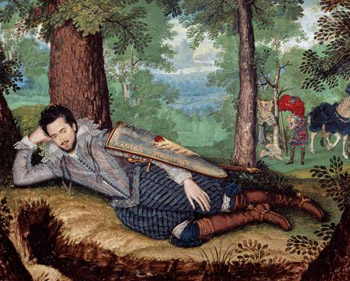 He is not pugnacious, because what demands the greatest effort is to fight. Fighting is more difficult than working. A month of hard work is easier than a day of battle. Everyone knows this. Especially when it is a fight against ourselves.
He is not pugnacious, because what demands the greatest effort is to fight. Fighting is more difficult than working. A month of hard work is easier than a day of battle. Everyone knows this. Especially when it is a fight against ourselves.
We must, therefore, ask Our Lady to cure us of the capital vice of laziness, to extirpate from our soul the sin that leads so many of us to foolishness, to mediocrity, to a kind of chronic dissonance toward the Cause. A person agrees, agrees, agrees with everything, but they are only words coming from his mouth. For when the time comes to act, he does nothing. Why? Because he lacked this virtue of vigilance. He is given over to the capital vice of laziness.
The Reign of Mary will be short-lived if there is no vigilance
The Reign of Mary must be the reign of vigilance or it will be ephemeral like a dream. Because the higher the virtue, the stronger it will be if there is vigilance, and the weaker it will be if there is not vigilance.
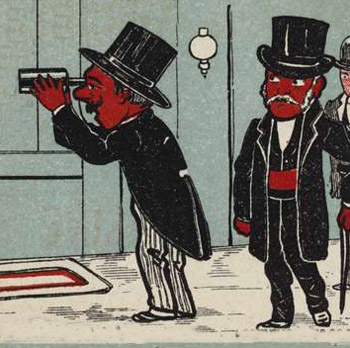 Imagine a man who leads a life of tremendous mortification, like St. Francis of Assisi. He sleeps with his head on a stone and makes many other mortifications of this kind. If he is very vigilant and does not allow any exception to this regime, he becomes accustomed to his austerity. If he relaxes a little, the appetite for that which he left leaps up like a lion. He, who is stronger than anyone when he makes no small concessions, becomes weaker than everyone after making one small concession. Thus will be the Reign of Mary.
Imagine a man who leads a life of tremendous mortification, like St. Francis of Assisi. He sleeps with his head on a stone and makes many other mortifications of this kind. If he is very vigilant and does not allow any exception to this regime, he becomes accustomed to his austerity. If he relaxes a little, the appetite for that which he left leaps up like a lion. He, who is stronger than anyone when he makes no small concessions, becomes weaker than everyone after making one small concession. Thus will be the Reign of Mary.
The wicked are always vigilant and informed about those who are good and what they do. They keep themselves informed about every point, every detail. Evil will continually be reborn. The anti-Christian conspiracy will continue to exist in the Reign of Mary, and if the good do not have their eyes continually fastened on it, it will conquer.
The evil ones will be in their burrows, not so much looking for other bad ones but looking out to see the good one who is not vigilant in order to run after him and conquer him. He is the victim. He is the weak part in the sacred wall.
A parabolic fact of the French Revolution
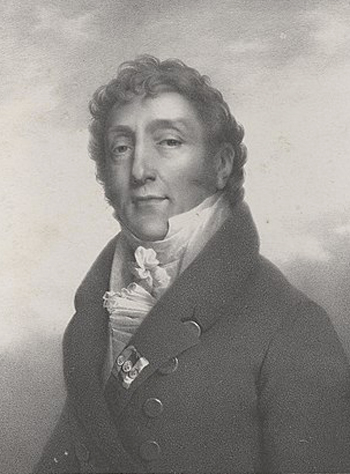 When speaking of the French Revolution, I cited the case of the Viscount de Montmorency-Laval, who proposed in the Estates-General that titles of nobility be abolished. This man later fled to the United States with a little money and began to spend it there so as not to starve.
When speaking of the French Revolution, I cited the case of the Viscount de Montmorency-Laval, who proposed in the Estates-General that titles of nobility be abolished. This man later fled to the United States with a little money and began to spend it there so as not to starve.
At a certain moment he had to go to a notary to pass a public deed to another. The notary addressed him as "Mr. Mathieu de Montmorency-Laval."
He responded with great indignation, "How dare you not use my title of Viscount? Don't you know that I belong to such and such an Order and received my title from the King himself, etc.?"
He wanted to take his cane to the notary who had ignored his titles, yet he was the one who had asked for the abolition of titles!
That is to say, the wretch was so unvigilant that he did not believe that he would ever have to personally answer to the request he had made ...
Suspicion, vigilance and pugnacity toward others
My neighbor is a man like me. All the evil I perceive in myself exists in everyone. I am neither better nor worse than the others. To say this is neither false humility nor a gross manifestation of pride. It is the experience of 62 years of existence. I am no better or worse than others. We are all bad, worthless.
The result: Even if I acknowledge the best qualities of some person but I see that he has no vigilance, what confidence can I have in him?

St. Ignatius Loyola, a model of vigilance with self and others
If I, without vigilance, will not remain good, why should he? Hence, a kind, respectful treatment, but with an open eye: I do not know how he will be tomorrow.
Sometimes you have to trust someone because one cannot go forward with a plan without making an act of trust in this or that person. But how often is it a somber, sad act of trust, saying to oneself, "How long will this last? From what vantage point? And to what extent? I don't know because I see no vigilance." This is obvious, normal. If you don't view it this way, you are not serious. The truth is this, and the rest is a farce.
I understand that someone can say to me, "I have been with you for a long time, and I see you still do not have a full trust in me as I have in you." What I would like to say is this, "My son, if I do not see vigilance in you, I cannot have confidence in you." How can I seriously say that I have a full trust? I would be playing the fool.
The enemy who is my neighbor
Now, if this sadly is the case with regard to those who are friends, clearly it is so in relation to the neighbor who is my enemy. Who am I referring to here? My enemy is not the person who raises the virtue of vigilance in me, the brazen man who insults and argues with me openly. We can clearly recognize that kind of enemy, and so he is less dangerous. I am referring to the enemy who is my neighbor.

A financial tip is not a sign of true friendship
Why? Because anyone who gives me bad advice or exercises a bad influence on me is an emissary of Satan in my view. At a certain moment, Our Lord said exactly this to St. Peter. St. Peter said something wrong, and Our Lord responded, "Get behind me, Satan!" (Mt. 16: 23)
How many Satans do we have around us? How many Satans in whom a misplaced confidence is entrusted by today's Counter-Revolutionary who, moved by the residues of "white heresy," is so often prone to place his trust in this or that neighbor? Of course this happens, and it takes place frequently.
At times incidents like this occur: You enter a group of authentic Catholics and ask a favor of someone. That person does not acquiesce to the request. And so you go outside that circle and ask the same favor of someone else, who grants it.
Then comes the egoism and foolishness: "See, I don't find the help I need where I should - among my brothers. Instead I find it from these others. Now then, my true brother is one who helps me. So my real friend and brother is out there, not inside the group of true Catholics." What a sham! I cannot accept a person whose mentality poisons me, who communicates death to my soul, who distances me from Our Lady, my brother.
I should call him an imperfect brother, a brother with serious defects, a brother afflicted by the unfortunate evil of semi-fidelity, and not favor him over that poor individual who did not do the good he could have done for me but also did not drag me into evil. I will not call one who moves me away from Our Lady, who takes me from my Mother, my brother. That would be egoism, putting my own self interest in the center of everything.

The bullfight, a symbol of good Spanish vigilance
The same thing happened in Spain, as we saw in the first article. The splendid fruits of the heroism of the Spanish Civil War were destroyed by this foolhardiness, this lack of vigilance. A great Catholic nation, which had the primordial light to be a vigilant nation first among all others, which gave the Church inquisitor-Saints, yet which could reach a total self-destruction because of the lack of vigilance.
Where did this lack of vigilance come from? From that sentimental false piety, so in vogue in certain ambiences in these last times of the Constantine era of the Church.
Laziness, a capital defect opposed to vigilance
The capital defect opposed to vigilance is laziness. The lazy man is not vigilant, because vigilance requires effort. He is not suspicious, because an effort is needed to be suspicious.

Dressed for battle, but immersed in idle dreaming
We must, therefore, ask Our Lady to cure us of the capital vice of laziness, to extirpate from our soul the sin that leads so many of us to foolishness, to mediocrity, to a kind of chronic dissonance toward the Cause. A person agrees, agrees, agrees with everything, but they are only words coming from his mouth. For when the time comes to act, he does nothing. Why? Because he lacked this virtue of vigilance. He is given over to the capital vice of laziness.
The Reign of Mary will be short-lived if there is no vigilance
The Reign of Mary must be the reign of vigilance or it will be ephemeral like a dream. Because the higher the virtue, the stronger it will be if there is vigilance, and the weaker it will be if there is not vigilance.

The evil, always on the watch to catch the good
The wicked are always vigilant and informed about those who are good and what they do. They keep themselves informed about every point, every detail. Evil will continually be reborn. The anti-Christian conspiracy will continue to exist in the Reign of Mary, and if the good do not have their eyes continually fastened on it, it will conquer.
The evil ones will be in their burrows, not so much looking for other bad ones but looking out to see the good one who is not vigilant in order to run after him and conquer him. He is the victim. He is the weak part in the sacred wall.
A parabolic fact of the French Revolution

Viscount de Montmorency-Laval: unwilling to give up his titles
At a certain moment he had to go to a notary to pass a public deed to another. The notary addressed him as "Mr. Mathieu de Montmorency-Laval."
He responded with great indignation, "How dare you not use my title of Viscount? Don't you know that I belong to such and such an Order and received my title from the King himself, etc.?"
He wanted to take his cane to the notary who had ignored his titles, yet he was the one who had asked for the abolition of titles!
That is to say, the wretch was so unvigilant that he did not believe that he would ever have to personally answer to the request he had made ...
Posted February 4, 2019











